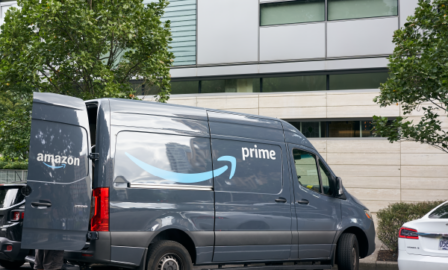Creating an Inclusive eCommerce Strategy
For years, eCommerce has been growing in popularity. Younger generations were one of the first to embrace the digital shift but, over time, we’ve seen more consumers and brands make the jump. This transition has been expedited as a response to the lockdowns that have erupted across the world due to COVID-19. In May, online grocery sales reached $6.6 billion, a 24% increase over the previous month. Walmart alone saw a 74% jump in eCommerce sales in Q2.
For many, the internet makes shopping easier and more accessible than ever. They’re able to order their groceries and other household essentials with the click of a button from the comfort of their couch. But unfortunately, the digital age has left many people behind. Lower income households and the elderly are two groups that have been largely forgotten by today’s eCommerce world. In order for brands to create a truly successful digital strategy, they need to create one with inclusive e-commerce at the center.
Inclusive eCommerce Aids Lower Income Populations
In February 2020, nearly 37 million people received SNAP benefits (food stamps) in the US. With the growing unemployment numbers from the past few months, that number will likely increase. Yet, in 2019, less than one third of grocery stores and less than 10% of superstores accepted SNAP benefits. That number is drastically lower online, leaving many lower income households unable to shop for food online. While during normal times, this may not seem like a big deal, it becomes a much bigger issue in times of crisis. While many Americans were able to buy their groceries online or arrange a contact-free pickup, lower income families’ only option was to visit a small number of stores and risk infection.
To better accommodate lower-income individuals, online grocers should accept a wider range of payment options, such as debit cards and SNAP benefits. Accepting a variety of payment options, including food stamps, will help address America’s food desert challenge. It would also help lower-income families, many of which include essential workers, stay safe and healthy.
Bridging the Generational Gaps
Older individuals, typically those from the Boomer or Silent generations, have been slow to embrace eCommerce. And, as a result, many digital platforms were not built to accommodate them. COVID-19 has highlighted the downside of this. With older individuals more susceptible to severe symptoms of the novel coronavirus, they were advised not to visit public places, including grocery stores. This left many scrambling to figure out how to get their essentials and frightened about what to do.
Brands and retailers should make it very clear on how to access delivery services and offer customer support to help those who are not digitally-savvy. It’s also important to think about the accessibility of the site, such as its ability to enlarge text and images or its accessibility on a variety of devices. Finally, offering free delivery for at-risk individuals can help alleviate concerns for those who may not be able or accustomed to paying delivery fees.
COVID-19 has sped up society’s transition to a digital-first world. But, as brands and retailers make the jump, it’s vital that they consider all shoppers, and not just the digitally-native ones. Inclusive eCommerce has the potential to reduce inequities in society, eliminate food deserts, and support underprivileged communities and rural areas. While grocery sales have grown in the face of COVID-19, longevity and sustainability in e-commerce will require an approach that embraces inclusivity. In order to reach its full potential, eCommerce leaders must champion an inclusive strategy that doesn’t leave any one behind.


